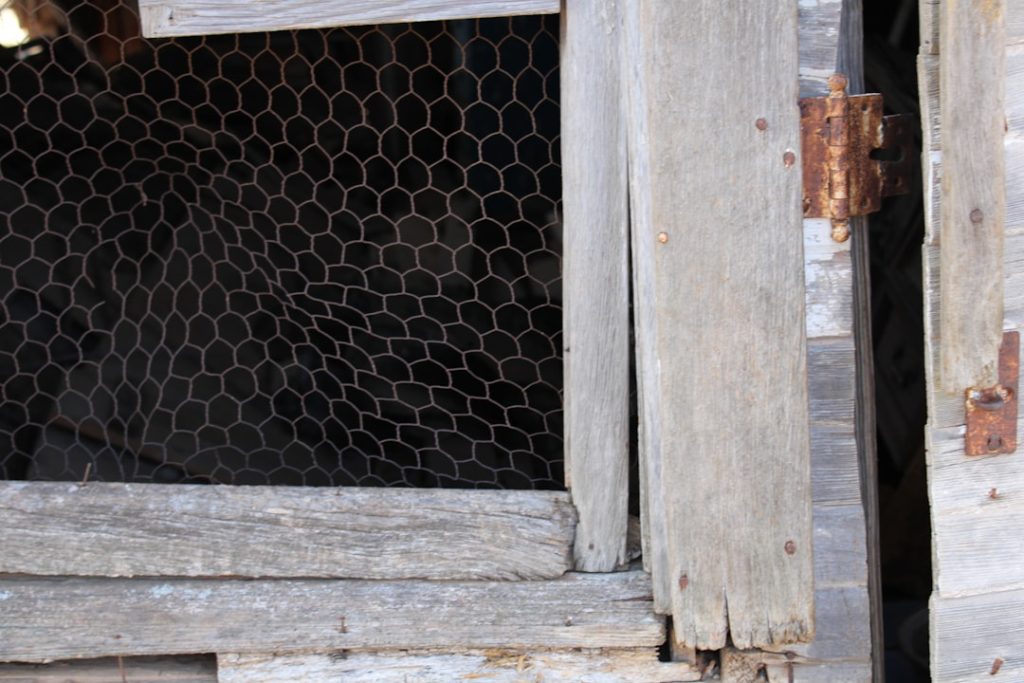Chickens are social creatures with a complex hierarchy known as the pecking order. This social structure is essential for maintaining order within the flock. They possess natural instincts to forage, dust bathe, and roost, which are crucial for their physical and mental well-being.
Chickens are sensitive to environmental changes and can experience stress when their routines are disrupted. These birds have a strong exploratory drive and spend considerable time searching for food by scratching and pecking at the ground. They are naturally inquisitive and derive satisfaction from discovering insects, seeds, and other edible items.
Providing opportunities for chickens to engage in these innate behaviors is vital for their overall health and contentment. Chickens thrive on consistency and are creatures of habit. Alterations to their environment or daily schedule can induce stress and potentially lead to behavioral problems.
By comprehending and accommodating these natural behaviors, chicken keepers can create an environment that promotes the birds’ welfare and minimizes the occurrence of undesirable conduct such as excessive pecking or aggression.
Table of Contents
- 1 Creating a Chicken-Friendly Space
- 2 Implementing Natural Deterrents
- 3 Using Fencing and Barriers
- 4 Providing Alternative Sources of Food and Entertainment
- 5 Regular Maintenance and Monitoring
- 6 Seeking Professional Advice
- 7 FAQs
- 7.1 What are some effective ways to keep chickens from destroying a garden?
- 7.2 How can fencing or netting be used to keep chickens out of a garden?
- 7.3 What are some natural deterrents that can be used to keep chickens away from a garden?
- 7.4 How can providing a designated foraging area help prevent chickens from destroying a garden?
- 7.5 Are there any other methods that can be used to keep chickens from destroying a garden?
Key Takeaways
- Chickens have complex social structures and natural behaviors that should be understood and respected when creating a chicken-friendly space.
- Providing a safe and comfortable environment with access to natural elements like sunlight, dust baths, and perches is essential for chicken well-being.
- Implementing natural deterrents such as predator-proof coops, motion-activated lights, and sound devices can help keep chickens safe from potential threats.
- Using fencing and barriers to secure the chicken area and prevent access to predators is crucial for their safety.
- Offering alternative sources of food and entertainment, such as hanging treats and providing toys, can keep chickens engaged and reduce the likelihood of them wandering off.
- Regular maintenance and monitoring of the chicken coop and surrounding area is necessary to ensure a safe and healthy environment for the chickens.
- Seeking professional advice from veterinarians or experienced chicken keepers can provide valuable insights and guidance for maintaining a chicken-friendly space.
Creating a Chicken-Friendly Space
Coop Requirements
A chicken-friendly space starts with a well-designed coop that provides adequate shelter and space for your flock. The coop should be spacious enough to accommodate each bird, with at least 2-3 square feet per chicken. It should also provide protection from predators and the elements, with proper ventilation and insulation. Additionally, the coop should feature roosting bars for the chickens to perch on at night, as well as nesting boxes for laying eggs.
Outdoor Space Essentials
Outdoor space is equally important, with at least 10 square feet per bird for free-ranging or access to a run. This outdoor area should include spaces for foraging, dust bathing, and exploring, as well as protection from predators. By providing a safe and stimulating outdoor environment, you can keep your chickens happy and healthy.
Layout and Maintenance
In addition to providing adequate shelter and outdoor space, it’s essential to consider the layout and design of the chicken-friendly space. This includes providing areas for shade, as well as access to fresh water and food. The space should also be kept clean and free of debris, with regular maintenance to prevent the buildup of waste and pests. By creating a well-designed and maintained space, chicken owners can ensure the health and well-being of their birds while reducing the likelihood of unwanted behavior.
Implementing Natural Deterrents

Implementing natural deterrents is an effective way to keep unwanted pests and predators away from the chicken-friendly space. This can include planting aromatic herbs such as lavender, mint, or rosemary around the coop and run, as these plants naturally repel insects and rodents. Additionally, installing motion-activated sprinklers or lights can startle predators and deter them from approaching the area.
Another natural deterrent is the use of predator decoys such as fake owls or snakes, which can trick potential threats into thinking there is a larger predator in the area. Another natural deterrent is the use of sound, such as wind chimes or predator calls, which can create an environment that is less appealing to potential threats. Additionally, keeping the area around the coop and run clear of tall grasses and brush can reduce hiding spots for predators.
By implementing these natural deterrents, chicken owners can create a safer environment for their birds while reducing the likelihood of unwanted pests and predators.
Using Fencing and Barriers
Using fencing and barriers is essential for creating a secure chicken-friendly space. This can include installing a sturdy fence around the perimeter of the coop and run to prevent predators from gaining access. The fence should be buried at least 12 inches underground to prevent digging from predators such as foxes or raccoons.
Additionally, adding a wire mesh apron around the perimeter of the fence can further deter digging predators. In addition to perimeter fencing, it’s important to consider internal barriers within the chicken-friendly space. This can include using fencing or netting to create separate areas for different purposes, such as a designated foraging area or a protected garden space.
By using fencing and barriers effectively, chicken owners can create a secure environment for their birds while reducing the likelihood of unwanted pests and predators.
Providing Alternative Sources of Food and Entertainment
Providing alternative sources of food and entertainment is essential for keeping chickens engaged and reducing unwanted behavior. This can include hanging treat dispensers or puzzle feeders in the coop or run to encourage natural foraging behavior. Additionally, providing access to fresh grass or pasture can give chickens opportunities to graze and explore new areas.
In addition to food, it’s important to provide entertainment for chickens to keep them mentally stimulated. This can include hanging mirrors or shiny objects in the coop or run, as well as providing perches or climbing structures for them to explore. Additionally, introducing new toys or objects such as balls or hanging ropes can provide hours of entertainment for chickens.
Regular Maintenance and Monitoring

Cleaning and Waste Management
Regular cleaning of the coop and run is essential to prevent the buildup of waste and pests. This helps to keep the area clean and free from diseases.
Inspecting Fencing and Barriers
It’s also important to regularly inspect the fencing and barriers for any signs of damage or wear. This helps to prevent predators from entering the area and ensures the safety of your chickens.
Monitoring Chicken Behavior and Health
In addition to regular maintenance, it’s crucial to monitor the behavior and health of the chickens on a daily basis. This includes observing their interactions with each other, as well as looking for any signs of stress or illness. By staying vigilant and addressing any issues promptly, chicken owners can ensure the well-being of their birds while reducing the likelihood of unwanted behavior.
Seeking Professional Advice
Seeking professional advice is important for addressing any issues or concerns related to creating a chicken-friendly space. This can include consulting with a veterinarian or animal behaviorist for guidance on managing unwanted behavior or addressing health issues. Additionally, seeking advice from experienced chicken owners or joining a local poultry club can provide valuable insights and support.
In some cases, it may be necessary to seek professional help for implementing natural deterrents or securing the chicken-friendly space. This can include hiring a professional pest control service or contractor to install secure fencing and barriers. By seeking professional advice when needed, chicken owners can ensure the safety and well-being of their birds while creating a harmonious chicken-friendly space.
If you’re struggling with keeping chickens from destroying your garden, you may want to check out this article on how big a coop needs to be for a chicken. It offers helpful tips on creating a suitable living space for your chickens, which can help prevent them from wandering into your garden and causing damage.
FAQs
What are some effective ways to keep chickens from destroying a garden?
Some effective ways to keep chickens from destroying a garden include using fencing or netting to create a barrier, providing a designated area for the chickens to forage, and using natural deterrents such as citrus peels or cayenne pepper.
How can fencing or netting be used to keep chickens out of a garden?
Fencing or netting can be used to create a physical barrier around the garden to prevent chickens from accessing the area. This can be done by installing a tall fence or using chicken wire or netting to enclose the garden space.
What are some natural deterrents that can be used to keep chickens away from a garden?
Natural deterrents such as citrus peels, cayenne pepper, or other strong-smelling substances can be scattered around the garden to discourage chickens from entering. These scents are unpleasant to chickens and can help to keep them away from the garden.
How can providing a designated foraging area help prevent chickens from destroying a garden?
Providing a designated foraging area for chickens can help to redirect their natural instinct to scratch and peck away from the garden. By providing an alternative space for the chickens to forage, they are less likely to venture into the garden and cause damage.
Are there any other methods that can be used to keep chickens from destroying a garden?
In addition to fencing, natural deterrents, and providing a designated foraging area, other methods such as using raised garden beds, installing motion-activated sprinklers, or using chicken-friendly plants as a distraction can also help to keep chickens from destroying a garden.
Meet Walter, the feathered-friend fanatic of Florida! Nestled in the sunshine state, Walter struts through life with his feathered companions, clucking his way to happiness. With a coop that’s fancier than a five-star hotel, he’s the Don Juan of the chicken world. When he’s not teaching his hens to do the cha-cha, you’ll find him in a heated debate with his prized rooster, Sir Clucks-a-Lot. Walter’s poultry passion is no yolk; he’s the sunny-side-up guy you never knew you needed in your flock of friends!







